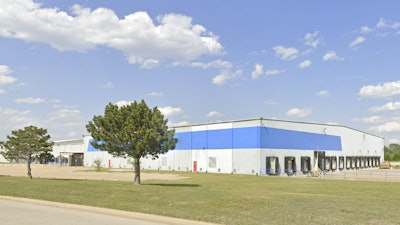
Blue Whale Materials, an upstart sustainable lithium-ion battery recycler, recently named the location of its first lithium-ion (li-ion) battery processing facility in the United States. The company picked Bartlesville, Oklahoma, a small town near the Kansas border, as the home for its commercial facility situated within a 35-acre campus.
The investment will include a 100,000-square-foot manufacturing facility and a 50,000-square-foot warehouse, creating some 90 new jobs.
Most Read on IEN:
- Podcast: China Cuts Access to Key Materials; Alumacraft Layoffs; Toyota's Gigacasting Prototype
- New Battery Recycling Facility Will Deepen Kentucky's Ties to EVs
- Utz to Close Oldest Plant
- Apocalypse Manufacturing Turned a Rivian into an 850-HP, Kevlar-Coated Monster
The campus has multiple lots to facilitate comprehensive battery processing, testing, dismantling and storage.
Robert Kang, CEO and co-founder of Blue Whale, says his company hopes to "reshape the battery industry."
Until now, a lack of critical mass (the amount of batteries to recycle) has kept the battery recycling industry in limbo. According to David Fauvre, Blue Whale's chief strategy officer and co-founder, the company already has supply commitments in place and is building out the new plant to meet outstanding demand for processing.
The announcement is a milestone in creating a U.S. supply chain for critical minerals, particularly as the nation learns how to build an ecosystem without imported Chinese resources that may be cut off as trade relations sour.
The new plant will use Blue Whale's proprietary Blacksand technology that processes spent li-ion batteries and production scrap into a highly concentrated dry product containing cobalt, nickel and lithium, as well as copper and aluminum products.
The process removes organics and impurities, ensuring a high-purity material that simplifies downstream refining steps. Unlike traditional wet techniques, which can complicate further refining, the dry technology streamlines the recycling process and enhances the quality of the recovered materials, according to the company.
Recycling isn't the only option for spent batteries. For example, Nissan recently formed a joint venture with JVCKenwood and 4R Energy to make portable power sources out of repurposed Leaf EV batteries.
Blue Whale has a testing and evaluation business, Greenfield, Indiana-based BW Energy & Innovation, which will offer testing and grading of li-ion batteries for secondary uses where applicable. According to Fauvre, "the channel is a viable option for certain batteries and battery types and can lead to a higher value endpoint for a battery than processing in some instances."
In return for Blue Whale's undisclosed investment, the Bartlesville Development Authority (BOA) and the city are providing several incentives. The BOA is funding up to $1 million in improvements to the facility, which the BOA owns.
The BOA is also adding up to $750,000 in rent credits over the first 25 months for the 50 full-time equivalent jobs the new facility will initially generate. The incentive is available through Bartlesville's Economic Development Fund, which the BOA will distribute. If Blue Whale grows faster than projected, the company will be eligible for up to $600,000 more in incentives through January 2026.
Fauvre says Blue Whale is also evaluating grant opportunities made available under the Bipartisan Infrastructure Law. In June, the U.S. Department of Energy announced more than $192 million in new funding for recycling batteries from consumer products.
The Bartlesville facility is scheduled to begin operations in late 2024.






















